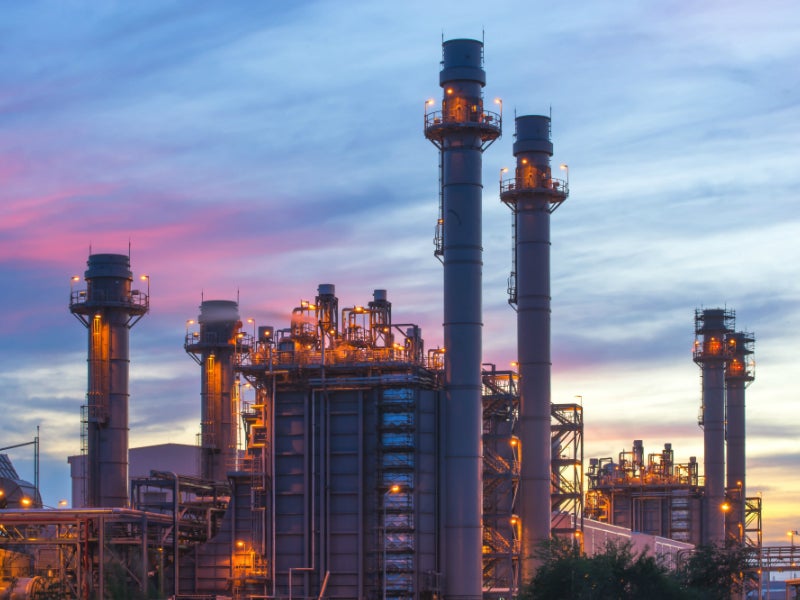The North Shuaiba power plant privatisation and eventual share sale involves many potential complexities.
Kuwait’s Electricity & Water Ministry (MEW) has recently invited consultants to bid for the advisory and valuation contracts for the privatisation of the $1.26bn North Shuaiba power plant (NSPP).
MEW has proposed a three-step programme that will take three years to complete.
The initial phase covers the establishment of a Kuwaiti shareholding company, which will own the NSPP assets. The selected consultants will undertake a valuation of the company and its assets and draft the energy conversion and water purchase agreement (ECWPA) between the shareholding company and MEW, which currently owns the asset.
Phase 2 will cover tendering the shares of the shareholding company and the required rehabilitation measures to improve plant efficiency. The third phase will cover transferring shares to employees and the public.
The proposed project is the latest in a series of ambitious attempts by Kuwait to keep its public-private partnership (PPP) programme alive. It also indicates the expanding role the state utility might play in the country’s tentative foray into a market where greater private sector participation has long been anticipated.
Pessimism
However, some experts say that the North Shuaiba power plant privatisation and eventual share sale involves many potential complexities.
The pessimism arises from multiple factors, not least the nature of the asset itself.
One senior consultant pointed out: “Investors will ask, ‘What are you selling?’ If the asset is not at the top dispatch level, then there will be many complexities to it.”
The dual-fuel plant has a net power generation capacity of 778MW. It also has three desalination units, running on multi-stage flash (MSF) technology, with a capacity of 45 million imperial gallons a day (MIGD).
According to MEW, the plant mainly uses natural gas for operation and fuel liquid gas oil as a back-up during periods where natural gas is either not available or is outside of the specified quality or pressure limits.
The tender document seen by MEED indicates that North Shuaiba’s power generation and water production availability between 2015 and 2017 averaged at 74% and 80% respectively, which is below industry benchmarks.
While the tender document did not refer to 2018-19 availability data, it did note that the “dispatch of NSPP was low with average load factors for power and water of 55%”.
Another senior consultant, who says they will not bid for the contract, expressed concern over the asset’s actual state and the amount of retrofit that may be required before the plant goes up to the dispatch level.
The consultant said: “As you know, performance deteriorates if some plant units are switched off.”
Notably, a team of Japan’s Mitsui Company and Italy’s Fisia Italimpianti built the plant on an engineering, procurement and construction (EPC) lump-sum turnkey basis in 2010-2012. Other contractors and sub-contractors include South Korea’s Hyundai Engineering & Construction and Doosan Heavy Industries, US-based GE and Germany’s Siemens. A joint venture of Malaysia’s TNB Remaco and Kuwait’s Kharafi National won the scheme’s operation and maintenance (O&M) contract, which expires in mid-2020.
Track record
The other factor driving pessimism over the project is the poor track record of Kuwait in procuring PPPs. The country’s private procurement authority has only awarded two contracts so far, the Al-Zour North 1 independent water and power producer (IWPP) scheme, which was fully commissioned in 2016, and the recently awarded Umm al-Hayman wastewater project.
In October, Kuwait Authority for Partnership Projects (KAPP) cancelled the transaction advisory services contract for the planned Al-Zour North 2&3 and Al-Khiran IWPPs, which the authority issued in December 2018. The contract has yet to be retendered.
The IWPP programme had already suffered from protracted delays, with the Al-Zour North 2&3 project having replaced the previously planned Al-Zour North 2 IWPP, which was cancelled in August 2017, 14 months after bids were submitted.
However, it must be noted that the official contract signing in January for the $1.7bn Umm al-Hayman wastewater scheme gave Kuwait’s PPP programme a major shot in the arm. In addition to being one of the largest PPP projects ever signed in the region, it is also the largest standalone wastewater scheme to be procured on a PPP basis.
Even this project has had its fair share of delays. The letter of award for the scheme was signed 14 months earlier in November 2018, and it is unclear if financial close for the entire project, which involves a wastewater treatment plant and a pumping station, has been reached.
Despite the less-than-encouraging figures on the North Shuaiba power plant’s performance and Kuwait’s faltering PPP stance, some consultants and developers are expected to bid for the project.
One of the consultants said: “There would be a few who will be interested but given the number of active PPP projects, particularly in Saudi Arabia, that would not include us.”




